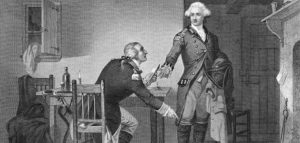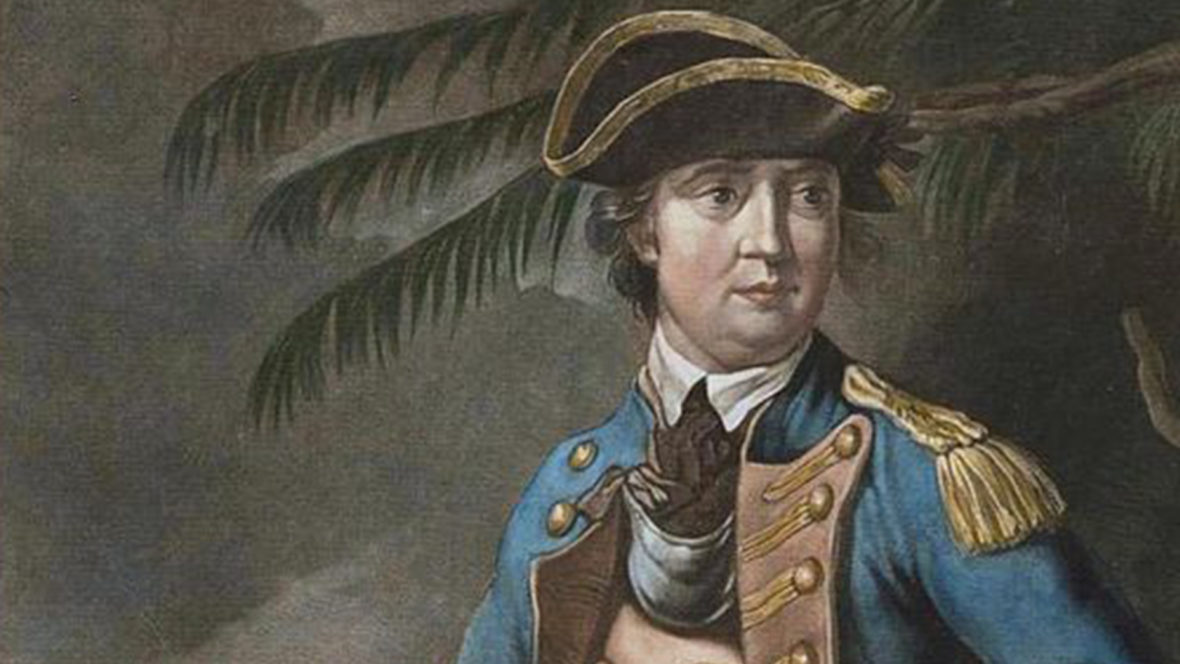Benedict Arnold was an American military officer who served as a general during the American Revolutionary War, fighting for the American Continental Army before defecting to the British in 1780. Take a look below for 30 more interesting and bizarre facts about Benedict Arnold.
1. George Washington had given him his fullest trust and placed him in command of the fortifications at West Point, New York.
2. Arnold planned to surrender the fort to British forces, but the plot was discovered in September, 1780, and he fled to the British.
3. His name quickly became a byword in the United States for treason and betrayal because he led the British army in battle against the very men whom he had once commanded.
4. Arnold was born in the Connecticut Colony was a merchant operating ships on the Atlantic Ocean when the war began in 1775.
5. He joined the growing army outside Boston and distinguished himself through acts of intelligence and bravery.

6. His actions included the Capture of Fort Ticonderoga in 1775, defensive and delaying tactics at the Battle of Valcour Island on Lake Champlain in 1776, which allowed American forces time to prepare New York’s defenses, the Battle of Ridgefield, Connecticut, operations in relief of the Siege of Fort Stanwix, and key actions during the pivotal Battles of Saratoga in 1777, in which he suffered leg injuries that halted his combat career for several years.
7. Arnold repeatedly claimed that he was passed over for promotion by the Continental Congress, while other officers obtained credit for some of his accomplishments.
8. Others in his military and political circles brought charges against him of corruption or other malfeasance, but most often he was acquitted in formal inquiries.
9. Congress investigated his accounts, however, and concluded that he was indebted to Congress, and he borrowed heavily to maintain a lavish lifestyle.
10. Arnold mingled with Loyalist sympathizers in Philadelphia and married into one such family, to vivacious young Peggy Shippen.

11. Peggy was a close friend of British Major John Andre and kept in contact with him when he became head of the British espionage system in New York.
12. Many historians point to her as facilitating Arnold’s plans to switch sides; he opened secret negotiations with Andre, and Peggy relayed the messages.
13. The British promised 20,000 pounds sterling for the capture of West Point, a major American stronghold; Washington greatly admired Arnold and gave him command of that fort in July, 1780.
14. His scheme was to surrender the fort to the British, but it was exposed in September, 1780, when Patriot militia captured Andre carrying papers which revealed the plot.
15. Arnold escaped and Andrew was hanged.
16. Arnold received a commission as a brigadier general in the British Army, an annual pension of 360 pounds sterling, and a lump sum of over 6,000 pounds sterling.

17. He led British forces on raids in Virginia, and they burned much of New London, Connecticut to the ground and slaughtered surrendering forces after the Battle of Groton Heights, just a few miles downriver from the town where he had grown up.
18. In the winter of 1782, he and Peggy moved to London, England.
19. He was well received by King George III and the Tories, but frowned upon by the Whigs and most Army officers.
20. In 1787, he moved to Canada to a merchant business with his sons Richard and Henry.
21. He was extremely unpopular there and returned to London permanently in 1791.
22. Arnold was the fifth person in his family to be named Benedict Arnold. Among others, he shared the name with his father and great grandfather, the latter of whom was the first governor of the Rhode Island colony under the 1663 Royal Charter.
23. Though he apprenticed at a druggists, and, as an adult, set up a profitable general store in New Haven, Arnold eventually decided to get into the shipping industry, purchasing three merchant vessels by the time he turned 26.

24. He used the boats to trade goods in Canada and the West Indies.
25. In January 1801, Benedict Arnold’s health began to decline.
26. He had suffered from gout since 1775, and the condition attacked his unwounded leg to the point where he was unable to go to sea. The other leg ached constantly, and he walked only with a cane.
27. His physicians diagnosed him as having dropsy, and a visit to the countryside only temporarily improved his condition.
28. He died after four days of delirium on June 14, 1801, at the age of 60.
29. Legend has it that, when he was on his deathbed, he said, “Let me die in this old uniform in which I fought my battles. May God forgive me for ever having put on another,” but this story may be apocryphal.
30. Arnold was buried at St. Mary’s Church, Bettersea in London, England. However, as a result of a clerical error in the parish records, his remains were removed to an unmarked mass grave during church renovations a century later.




